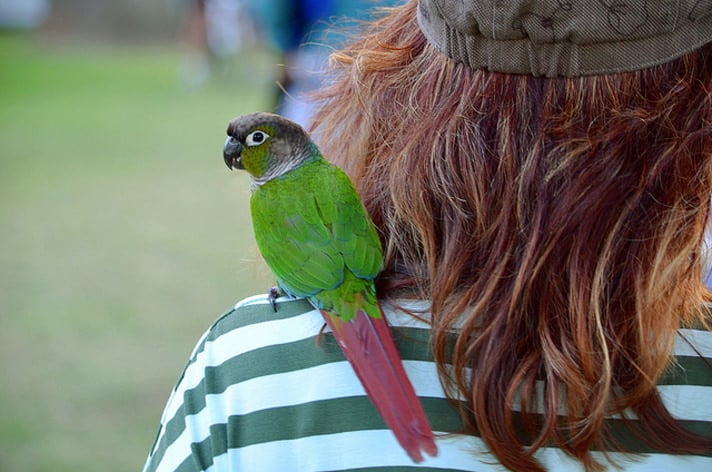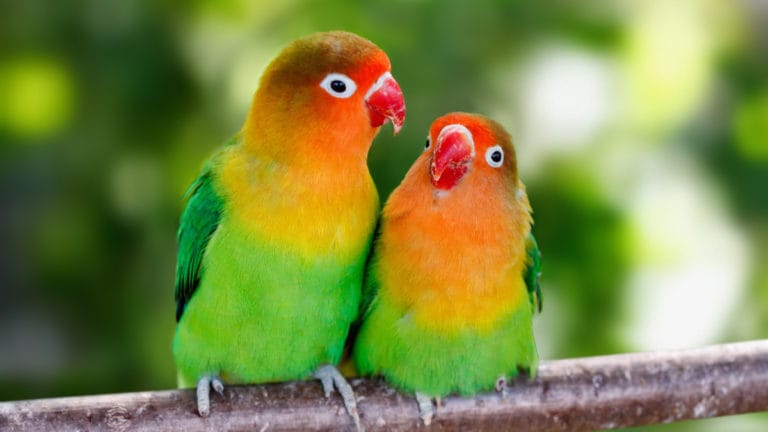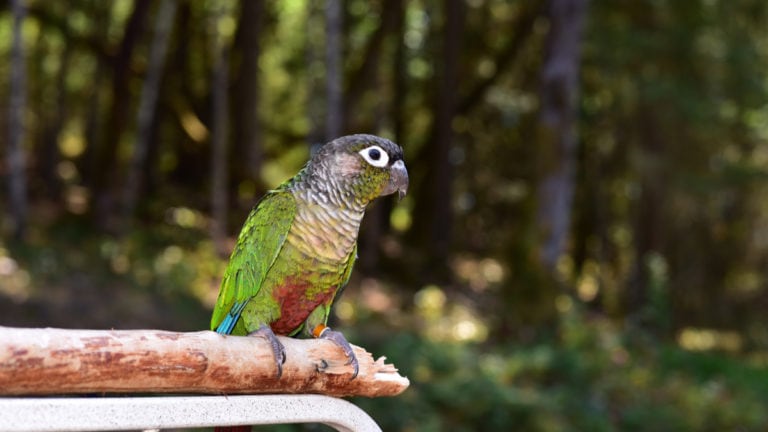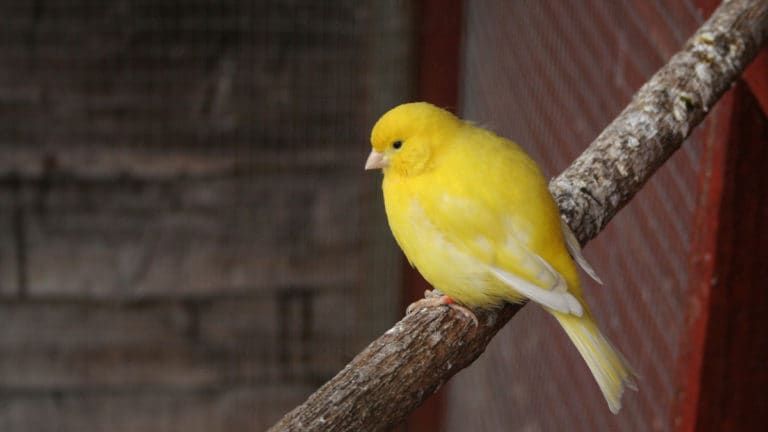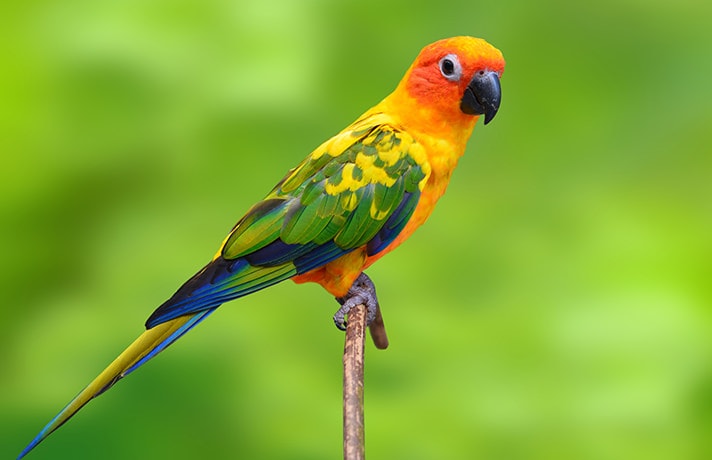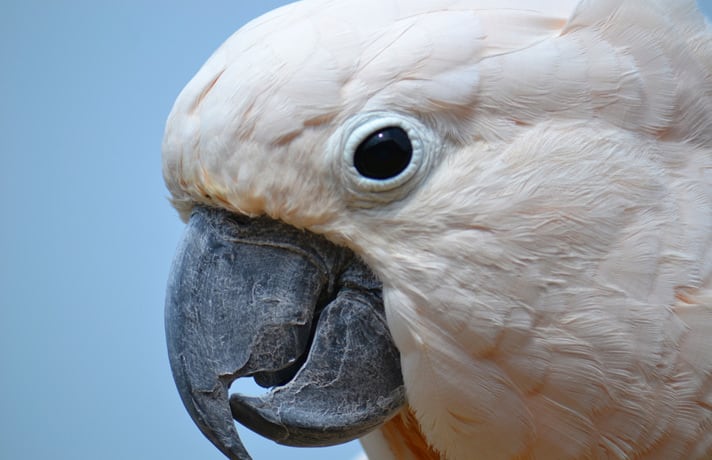A lot of people like to keep their small and medium birds perched on their shoulders. I frequently see conures riding around in this way. Sitting on your shoulder, however, should be considered a privilege for your bird, not just another perch. If you choose to shoulder your pet bird, properly train it to step off at your request.
Allowing your parrot to perch on your shoulder could create serious trouble in the future. Indeed, this is probably the only issue on which all experienced parrot behavior consultants seem to agree. The potential problem with shouldering parrots depends on several things:
- Is your parrot sexually mature yet? If not, you might not be seeing your pet bird’s true behavior. While you’re training it to sit on your shoulder, it will age and possibly become more aggressive. As parrot behavior consultant Sally Blanchard said so well, “You don’t see juvenile delinquents in a crib.” Although your conure is not aggressive now, this does not guarantee that she won’t become aggressive in the future. I did not, for example, start sassing my mother until I was 10 years old, so she could not have concluded when I was 5 that I wouldn’t talk back in the future. There are no crystal balls available!
- Running up a stranger’s shoulder to hide could mean that your parrot is not very well trained. I suspect your conure then plays “Keep Away” when you try to remove her. If she is not compliant about stepping on and off your finger when you ask, then her behavior is likely to get worse. If I choose to shoulder a parrot, it has to be my idea, not the bird’s decision. It is, after all, my shoulder. So I might ask the parrot if she would like to sit on my shoulder, then step her on with a down command. I would, however, only do this with a parrot that was properly trained to politely step off my shoulder and onto my hand when I request it. Your conure needs to learn to do this when you ask her to, not just when it’s her idea.
- Shouldering a parrot means you are putting your pet bird next to your face, which is a part of your anatomy you do not want bitten. Trust me on this. Occasional bites are a routine job hazard of a veterinary technician, and I was a tech for 20 years. I’d been an animal tech for 10 years when I was bitten in the face by a dog, and, despite my years of experience, I was totally unprepared for my reaction. Perhaps it’s something primal about personal identity, I don’t know. All I know was that, unlike all the other bites I endured, this injury was devastating, and it took a long time to get over it. As a result, I certainly would not allow a parrot on my shoulder if it ever showed aggressive behavior, no matter what.
- Shouldering is a great way to lose a pet bird. People often forget and walk outside with a small parrot on their shoulder, enabling the bird to escape.
- Most people don’t train parrots to avoid jewelry, and earrings especially can be a serious swallowing hazard. A parrot can remove and gulp down an earring in a second, then need emergency surgery. Not good! Some jewelry contains toxins as well.
- You need to closely observe your parrot’s body language to prevent a bite. When a parrot is on your shoulder, you cannot see a change in body language or behavior that would warn you of imminent violence. Additionally, a parrot that starts to fall will grab anything it can. If that includes your ear, eye, nose or cheek, well, that could be a problem.
Shoulder Alternatives
Alternatives to shouldering exist. Set up small perches all over your house. Carry your parrot on your hand, then put her down in each location. Multiple perches are great for parrots, because they offer a change of scene. Small bird perches can be anything from a basket, to a branch stuck in a pot of sand. Voila,your hands are free!
Whatever you decide, remember that you are the one who made that choice. If something happens and your face ends up bitten, please take responsibility for your own actions, and do not make your parrot pay the price of your decision.
Posted By: Chewy Editorial
Featured Image: Via Eric Sonstroem/Flickr
Share:
